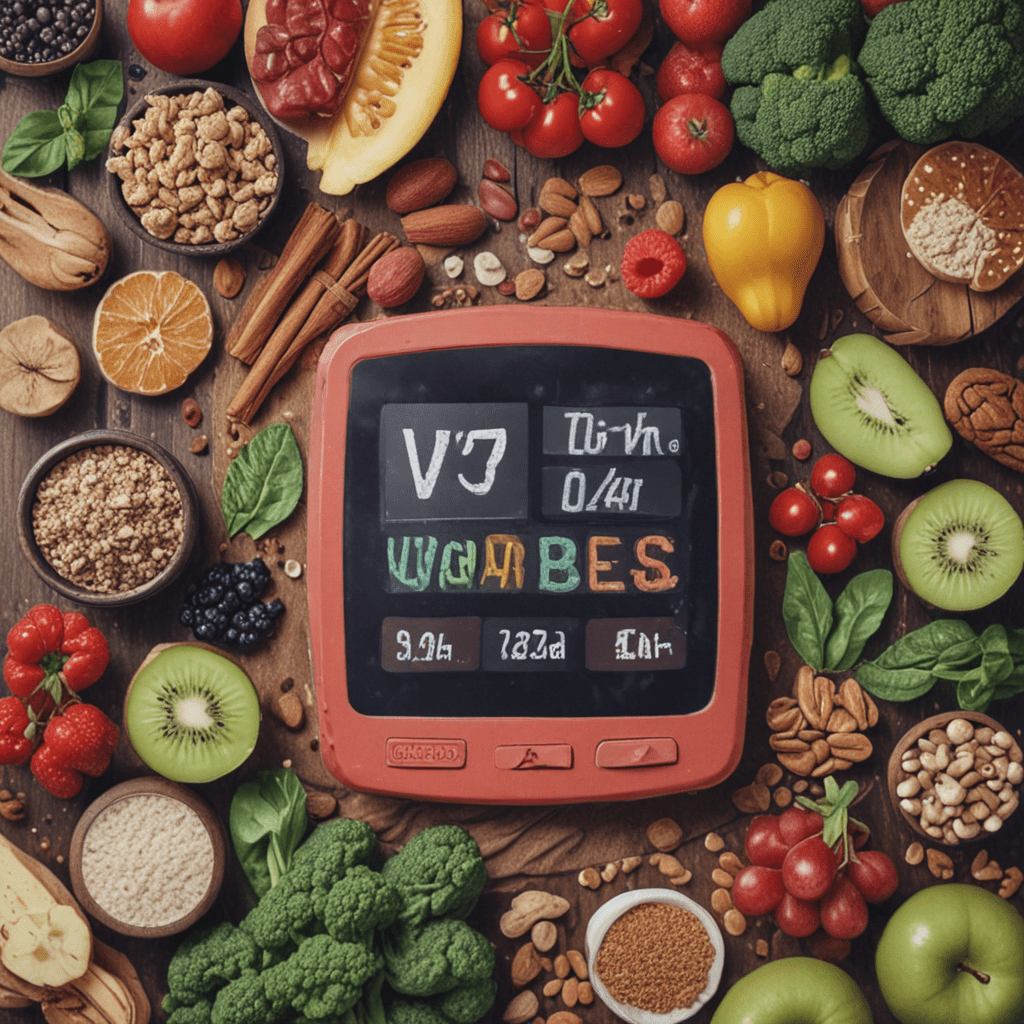Vegan Diet: Balancing Blood Sugar Levels for Diabetes
Introduction
For individuals with diabetes, managing blood sugar levels is crucial to prevent complications. A well-balanced vegan diet has emerged as a potential solution, offering a comprehensive approach to blood sugar control. This article delves into the benefits of a vegan diet for diabetes management, explores the recommended foods to include and avoid, and highlights the importance of monitoring blood sugar levels while working closely with healthcare providers. By adopting a vegan diet, individuals with diabetes can improve their overall well-being, reduce the risk of complications, and live healthier and more fulfilling lives.
Understanding Diabetes and Blood Sugar Control
Diabetes is a chronic condition characterized by elevated blood sugar levels (hyperglycemia). The pancreas, an organ responsible for producing insulin, plays a crucial role in regulating blood sugar levels. In individuals with diabetes, the body either does not produce enough insulin or cannot effectively use the insulin it produces, leading to the accumulation of sugar in the bloodstream. Prolonged hyperglycemia can damage blood vessels and organs, increasing the risk of heart disease, stroke, kidney failure, and blindness. Therefore, maintaining healthy blood sugar levels is of paramount importance for individuals with diabetes.
Benefits of a Vegan Diet for Diabetes Management
A vegan diet, excluding all animal products, offers several advantages for individuals with diabetes. By eliminating saturated fats, cholesterol, and animal proteins, a vegan diet promotes heart health, reduces inflammation, and improves insulin sensitivity. Plant-based foods are rich in fiber, which helps slow down digestion and absorption of carbohydrates, resulting in more gradual and sustained blood sugar levels. Additionally, vegans tend to have lower body weight and body mass index (BMI) compared to non-vegans, which further contributes to improved blood sugar control.
6. Tips for Meal Planning on a Vegan Diet
Meal planning is essential for managing blood sugar levels on a vegan diet. Start by focusing on whole, unprocessed plant-based foods, such as fruits, vegetables, legumes, and whole grains. Include a variety of colors and textures in your meals to ensure a wide range of nutrients. For breakfasts, consider oatmeal with fruit and nuts, or smoothies made with fruits, vegetables, and plant-based milk. Lunch options could include salads with grilled tofu or tempeh, or sandwiches on whole-wheat bread with hummus and vegetables. For dinners, opt for vegetable-based soups, stews, or curries, accompanied by brown rice or quinoa.
7. Importance of Getting Enough Protein
Protein is crucial for satiety, blood sugar control, and overall health. Plant-based sources of protein include legumes (beans, lentils, chickpeas), tofu, tempeh, edamame, nuts, and seeds. Aim for 1.2 to 1.7 grams of protein per kilogram of body weight per day. Include a protein source with each meal to promote stable blood sugar levels and reduce cravings.
8. Considerations for Vitamin B12 and Omega-3 Fatty Acids
Vitamin B12 and omega-3 fatty acids are essential nutrients not readily available in plant-based foods. Vitamin B12 is vital for cell growth and nerve function, while omega-3s support heart and brain health. Consider fortified plant-based foods, such as cereals, plant-based milks, or nutritional yeast, to ensure adequate vitamin B12 intake. For omega-3s, include algae-based supplements or consume foods high in alpha-linolenic acid (ALA), such as flaxseeds, chia seeds, or walnuts.
9. Monitoring Blood Sugar Levels and Working with Healthcare Providers
Regular blood sugar monitoring is crucial for managing diabetes. Consult with your healthcare team to determine the appropriate frequency and methods for checking your blood sugar levels. Record your readings to identify patterns and adjust your diet and lifestyle as needed. Work closely with your doctor, registered dietitian, or diabetes educator to create a personalized plan that meets your individual needs and goals.
10. Conclusion and Long-Term Success
A well-planned vegan diet can be an effective approach to balancing blood sugar levels for individuals with diabetes. By incorporating whole, plant-based foods, managing protein intake, and considering essential nutrient sources, vegans can reduce the risk of diabetes complications, improve their overall health, and live fulfilling lives. Long-term success with a vegan diet requires consistency, monitoring, and collaboration with healthcare providers. Embrace the plant-based journey to unlock the potential for optimal diabetes management and well-being.
FAQ
Can a vegan diet reverse diabetes?
While a vegan diet cannot reverse diabetes, it can improve blood sugar control and reduce the risk of complications.
Is a vegan diet safe for everyone with diabetes?
It is important to consult with your healthcare team before making significant dietary changes. They can assess your individual needs and recommend the best approach.
How often should I check my blood sugar levels on a vegan diet?
Frequency of blood sugar monitoring varies depending on individual factors. Consult with your healthcare provider for personalized recommendations.
What are some plant-based sources of calcium?
Good sources of calcium include fortified plant-based milks, leafy green vegetables (e.g., kale, spinach), tofu, and fortified cereals.


